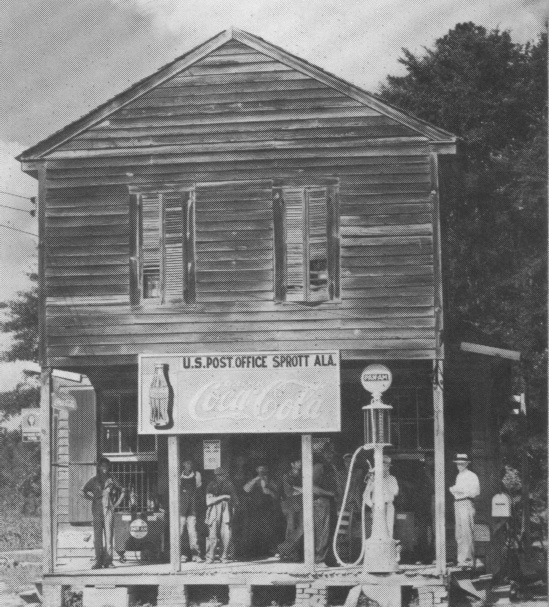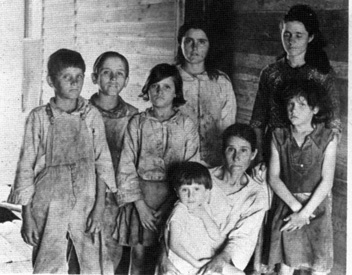 Empathy and privilege
Empathy and privilege
James Agee & Walker Evans, Let Us Now Praise Famous Men, (1941).
story-telling is about? | Means of knowing | terms | details
A discussion of media’s affect and effects of writing and photography on the writers of and the people who become the focus of investigative journalism -- in this case pockets of poverty during the worst of the Great Depression.
August 1936: rural Alabama, and a depiction of three tenant farming families.
Agee is critical of the belief that by looking at photographs of the victims of poverty that we, the privileged, can actually understand the wider context and deeper motivation of people who endure what we cannot.
Instead – Agee insisted that “As a matter of fact, nothing I might write could make any difference whatever. It would only be a 'book' at the best …and under one such name or another might in time achieve the emasculation of acceptance."
page, 13.
The Ricketts family (9 children, 7 of whom are pictured) lived on "ten dollars per month" in the Spring and paid eight percent interest on their loans for fertilizer and food from the owners of the land on which they had been tenants.
About ”However that may be, this is a book about 'sharecroppers,' and is written for all those who have a soft place in their hearts for the laughter and tears inherent in poverty viewed at a distance….”
p. 13-14.
"The nominal subject is North American cotton tenantry as examined in the daily living of three representative white tenant families."
Actually, the effort is to recognize the stature of a portion of unimagined existence, and to contrive techniques proper to its recording, communication, analysis, and defense. More essentially, this is an independent inquiry into certain normal predicaments of human divinity."
p. xiv.
Ultimately, it is intended that this record and analysis be exhaustive, with no detail, however trivial it may seem, left untouched, no relevancy avoided, which lies within the power of remembrance to maintain, of the intelligence to perceive, and of the spirit to persist in."
p. xiv.
borderland between communicable visions and voyeurism
Emasculation of acceptance versus Ambience of distraction

“During July and August 1936 Walker Evans and I were travelling in the middle south of this nation, and were engaged in what, even from the first, has seemed to me rather a curious piece of work.”
"It was our business to prepare, for a New York magazine, an article on cotton tenantry in the United States, in the form of a photographic and verbal record of the daily living and environment of an average white family of tenant farmers.”
We had first to find and to live with such a family; and that was the object of our traveling."
"We found no one family through which the whole of tenantry in that country could be justly represented, but decided that through three we had come to know, our job might with qualified adequacy be done."
p. xiii.
Ricketts, Gallatin, and Gudger ("owns nothing"), these three representative white tenant families (five to nine children in each) are the book's focus.
Significant details:
- Settings of rural farmlands, p. 49.
- Money, p. 105.
- Shelter, p. 113.
- clothing, p. 233.
- education, p. 263.
- work, p. 289.
- inductions, meeting Fred Ricketts, p. 329.
- Shady Grove, Alabama, p. 395.
"In every child who is born, under no matter what circumstances, and of no matter what parents, the potentiality of the human race is born again: and in him too, once more, and of each of us, our terrific responsibility towards human life; towards the utmost idea of goodness, of the horror of error, and of God."
James Agee
p. 263.
Justice | Postman | Sontag | Photos |
Technology index ![]() landscape index
landscape index ![]() words index
words index ![]() photograph index
photograph index


